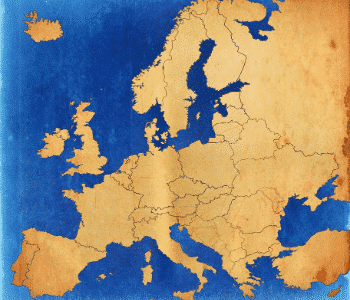Why Politicians Plagiarize in School
Who so many politicians have plagiarized theses...

The news this week may sound like Deja Vu. Slovakia’s Prime Minister, Igor Matovic, survived a no confidence vote after a newspaper highlighted widespread plagiarism in his 1998 thesis at Bratislava’s Comenius University.
The result was widely expected. Matovic’s coalition government has a considerable majority in Parliament and, when the votes were cast, only 47 out of 125 present lawmakers voted to remove him.
But the story may sound remarkably familiar. Though these are the first allegations against Matovic, we’ve discussed similar allegations all over Europe.
This includes the Hungarian President resigning admits a 2012 plagiarism scandal, another 2012 scandal in Romania that claimed the careers of several minister and two German scandals, one in 2011 and one in 2013, that saw the resignations of the Defense Minister and the Education Minister respectively.
While it’s true that political plagiarism scandals are an international affair, something we report on a great deal in the United States, but all these stories are eerily similar. They all involve politicians at the upper echelon of government being accused of plagiarism in years or even decades-old academic works.
However, this isn’t a coincidence and there’s a quite simple reason for it: Politicians often care more about the degree than the knowledge that should come with it.
Where History and Plagiarism Intersect

To understand all these cases, let us look at them one by one.
- In March 2011, German Defense Minister Karl-Theodor zu Guttenberg was accused of plagiarism in his 2006
- In April 2012, Hungarian President Pal Schmitt was accused of plagiarism in his 1992 doctoral thesis.
- In June 2012, Romanian President Victor Ponta was accused of plagiarism in his 2003 doctoral thesis.
- In February 2013, German Education Minister Annette Schavan of plagiarism in her 1980 thesis.
- In September 2015, German Defense Minister Ursula von der Leyen was accused of plagiarism in her 1990 dissertation
- In July 2020, Slovakian Prime Minister was accused of plagiarism in his 1998 thesis
This list goes on and on and on and this group only focuses on Central Europe. We’ve seen comparable stories in Spain, the United States and elsewhere. This pattern of a politician being found to have plagiarized their thesis, dissertation or other key academic work repeats itself all over the globe.
However, focusing on Central Europe helps us understand one of the common themes: Political unrest.
Many of the cases above, though not all, happened in the years after the Berlin Wall fell in 1989. As we noted when discussing the Romanian stories, that caused many nations in the region to make a sudden switch away from Communism and that created a great deal of political turmoil.
Many of the elites, eager to hold on to their power among the shifting seas, saw education as an opportunity. Considering that the education systems in those nations were also in turmoil, that gave rise to both for-profit schools and lax enforcement at existing schools.
To make matters worse, there was no easy technology to detect plagiarism at that time, with the first dedicated plagiarism checkers not launching until 2000. Even if schools were strict, there may have been no way to catch them.
In short, for those that wanted a degree but not an education, there were many avenues available and some took them.
However, that doesn’t explain all of the cases. In reality, politicians plagiarize for the same reasons that others do: They feel like they can.
A Shortcut to the Top
Plagiarism is about one thing and one thing alone: Putting outcomes ahead of the process.
If you want to have authored a book but don’t care to write a book, you may be tempted to plagiarize. If you want to be considered a poet but don’t want to write poetry, you’ll likely plagiarize. If you want a degree but don’t care about the education, you will be more tempted to plagiarize.
For politicians, this can hit especially hard. One with a desire to go into politics may feel the need to get a degree even though it may not relate directly to the work they want to do. In short, they aren’t going to college to get an education or learn needed skills, they’re there to get a piece of paper that makes the more electable.
While there are many students that feel similarly, politicians are especially vulnerable, especially if they are someone in a position of power trying to retain it, such as during periods of turmoil.
Couple that with the lack of effective plagiarism detection before the year 2000 (and even longer to wait for widespread adoption) and you have an environment where politicians, as well as other students, could exploit the system easily.
It’s extremely easy to justify plagiarism to oneself if all you are doing is trying to get a piece of paper. For politicians, that’s often exactly what they are doing.
Bottom Line
Basically, politicians plagiarize for the same reason that other students do: They don’t value work that goes into their thesis or dissertation, only the degree that’s on the other side.
This is less of an issue in the United States because we place less emphasis on educational qualifications for elected leaders. While many hold higher degrees, they are rarely focused on or mentioned in campaigns.
In other countries, a master’s degree or a doctorate is seen as virtually essential to holding higher office. This pushes many politicians that have no personal interest in such a degree to seek one out and some of them will inevitably take shortcuts.
The things that have changes are that the political turmoil has quieted and the widespread adoption of anti-plagiarism software. The first makes academic plagiarism less tempting, especially for those already in power, and the second makes it more difficult.
What we are seeing today is modern technology being used to detect years or even decades-old plagiarism. The systems are stronger, the tools are better but that doesn’t mean the temptation still isn’t there.
In the end, it’s highly unlikely that Matovic will be the last politician to find themselves with plagiarism questions around their dissertation or thesis.
Want to Reuse or Republish this Content?
If you want to feature this article in your site, classroom or elsewhere, just let us know! We usually grant permission within 24 hours.
